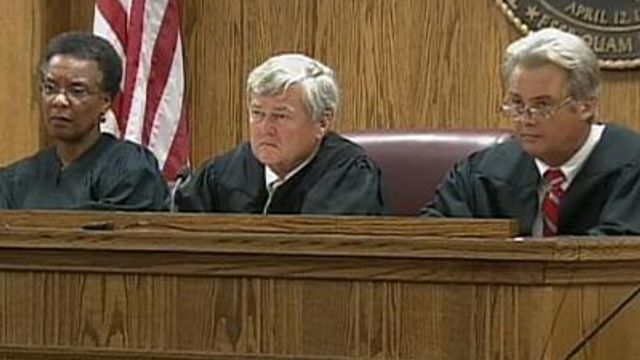GREENVILLE, N.C. — A special hearing, the first of its kind, began Monday to determine if a former Greenville police officer should be cleared of a crime of which he was convicted seven years ago.
Henry Reeves was convicted in 2001 of taking indecent liberties with a child. Recently, the North Carolina Innocence Inquiry Commission reviewed his case and found new evidence supporting his claims that he did not molest his daughter in 1999.
The eight-member commission of judges, prosecutors, defense attorneys and law enforcement officers reviews claims of innocence from convicted criminals, considering new evidence that might justify a new verdict.
It hears only evidence that was not introduced at trial.
Gov. Mike Easley signed a law in August 2006, making the commission the first of its kind in the nation.
In 2007, the General Assembly established the panel not only to examine cases but also to study how wrongful convictions can be avoided. The state chief justice or the chief judge of the Court of Appeals appoints each member.
Since May, the commission has received requests to review 288 cases. Of those, 135 are still under review, and 148 have been rejected. Four are under investigation. Reeves' case is the other.
His case is the first sent to a special hearing before a three-judge panel. New evidence, not available in 2001, includes the victim's recanting her story, new witnesses coming forward and accusations of coached testimony.
The panel will decide whether to exonerate Reeves or uphold the conviction. The hearing is expected to last a week.
About 90 percent of the cases submitted to the Innocent Inquiry Commission are likely to be rejected. About 58 percent are declined because there is not enough factual evidence to prove someone is innocent. About 18 percent are rejected because there is no new evidence, and 14 percent are turned town because of a guilty plea.
Homicide and child sex offense cases make up half the cases.
The commission does not address claims of technical errors in trials. That job remains with the state's court system.






